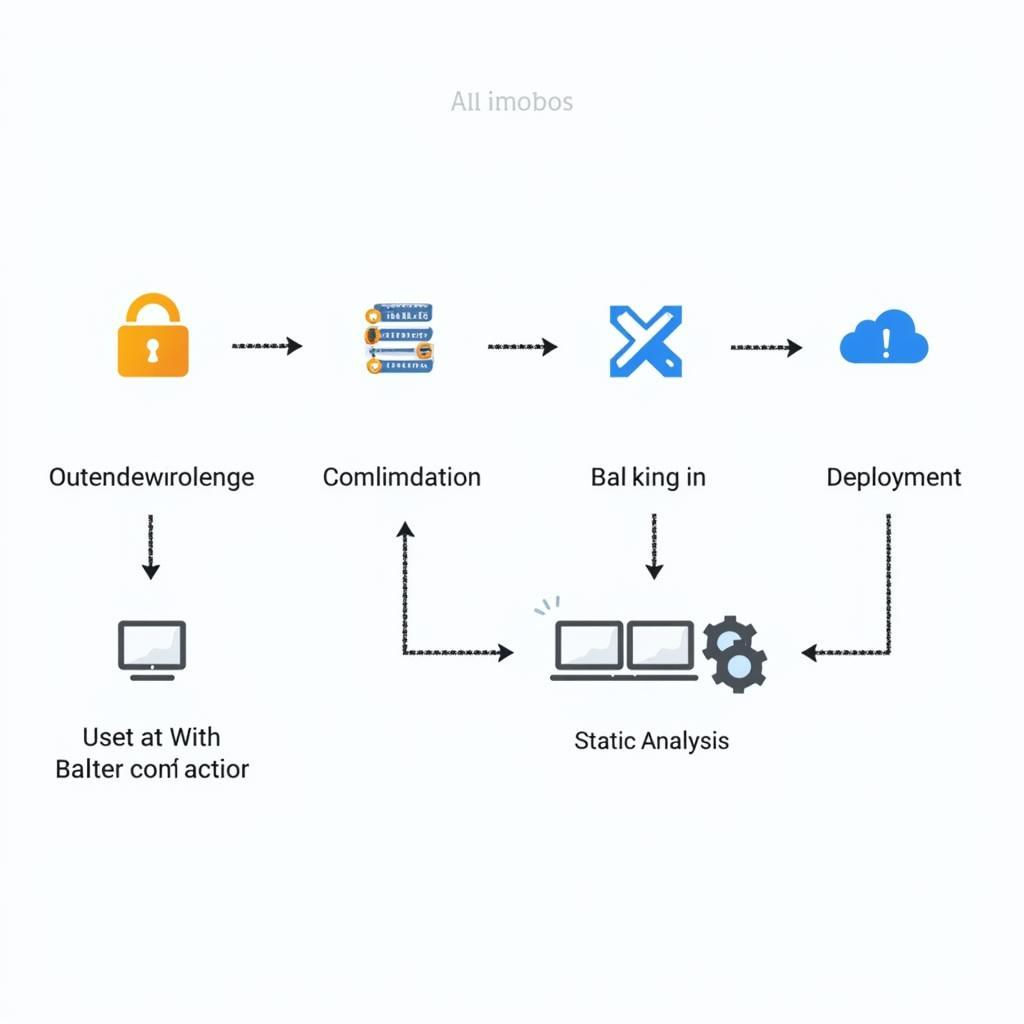Open source static code scanning tools are essential for developers seeking to improve code quality, identify vulnerabilities early, and reduce development costs. These tools analyze your code without actually executing it, helping you catch potential problems before they become major headaches. This guide will delve into the world of open source static analysis tools, exploring their benefits, popular options, and how to choose the right one for your needs.
Why Use Open Source Static Code Scanning Tools?
Early bug detection is a cornerstone of efficient software development. Open source static code analysis tools offer a cost-effective way to identify vulnerabilities, coding errors, and style inconsistencies during the development process, saving you valuable time and resources. They can also help enforce coding standards and improve overall code quality, making your projects more maintainable and robust.
Popular Open Source Static Code Scanning Tools
Choosing the right static analysis tool can be overwhelming. Here are some popular open source options known for their effectiveness and community support:
- SonarQube: A popular platform that supports multiple programming languages and offers a wide range of rules and metrics for code analysis. It also provides reporting and visualization features to track your code quality over time.
- PMD: A versatile tool that focuses on finding common coding errors, potential bugs, and suboptimal code. PMD supports numerous programming languages and can be easily integrated into various IDEs and build systems.
- FindBugs: Specifically designed for Java, FindBugs excels at identifying potential bugs and vulnerabilities related to concurrency, security, and performance.
- Cppcheck: A powerful tool for C/C++ code analysis that focuses on identifying undefined behavior, memory leaks, and other common issues.
- ESLint: A widely used JavaScript linter that helps enforce coding style guidelines and identify potential errors in JavaScript code. It’s highly configurable and can be integrated with various editors and build tools.
Choosing the Right Tool for Your Needs
Selecting the ideal open source static code scanning tools involves considering several factors:
- Programming Language Support: Ensure the tool supports the languages used in your project.
- Integration with Your Workflow: Choose a tool that integrates seamlessly with your existing development environment, IDE, and build system.
- Rules and Customization: Look for a tool with a comprehensive set of rules and the flexibility to customize them to your specific needs.
- Community Support and Documentation: Active community support and comprehensive documentation are crucial for troubleshooting and getting the most out of the tool.
Integrating Static Analysis into Your Workflow
Integrating static code scanning tools into your development workflow is essential for maximizing their benefits. Automate the process by configuring your build system to run the analysis during each build. This ensures that potential issues are identified early and prevents them from propagating to later stages of development.
Benefits of Using Static Analysis Tools
Beyond finding bugs, open source static code scanning tools offer a range of benefits:
- Improved Code Quality: Enforcing coding standards and best practices leads to cleaner, more consistent, and maintainable code.
- Reduced Development Costs: Early bug detection saves time and resources by preventing costly rework later in the development cycle.
- Enhanced Security: Static analysis tools can identify potential security vulnerabilities, helping you build more secure applications.
- Better Collaboration: Standardized coding styles and automated code reviews facilitate better communication and collaboration among developers.
 Integrating Static Analysis into CI/CD Pipeline
Integrating Static Analysis into CI/CD Pipeline
What are the Limitations of Static Analysis Tools?
While invaluable, open source static code scanning tools aren’t without limitations:
- False Positives: Static analysis tools can sometimes flag issues that aren’t actual bugs, requiring manual review to filter out false positives.
- Contextual Understanding: These tools analyze code without execution, so they may miss certain types of bugs that require runtime context.
- Limited Scope: Static analysis primarily focuses on code structure and syntax, and may not be able to detect all logical errors or performance bottlenecks.
Overcoming the Limitations
Addressing the limitations of static analysis tools involves a multi-faceted approach:
- Fine-tuning Rules: Customize the ruleset to minimize false positives and focus on the most relevant issues for your project.
- Combining with Dynamic Analysis: Complement static analysis with dynamic analysis techniques to catch runtime errors and performance issues.
- Manual Code Reviews: Human review remains essential for catching complex issues that automated tools might miss.
Conclusion
Open source static code scanning tools are invaluable assets in modern software development. By integrating these tools into your workflow, you can improve code quality, enhance security, and reduce development costs. While no single tool is perfect, by carefully selecting and configuring the right tool for your needs, you can significantly improve the efficiency and effectiveness of your development process. Leveraging the power of open source static analysis is a crucial step towards building robust, secure, and maintainable software.
FAQ
- What is the difference between static and dynamic analysis?
- How often should I run static analysis on my code?
- Can static analysis tools detect all types of bugs?
- What are some best practices for integrating static analysis into my workflow?
- Are there any free static analysis tools available?
- How can I customize the rules of a static analysis tool?
- What is the role of static analysis in a CI/CD pipeline?
Need support? Contact us via WhatsApp: +1(641)206-8880, Email: [email protected] or visit us at 276 Reock St, City of Orange, NJ 07050, United States. We offer 24/7 customer support.


